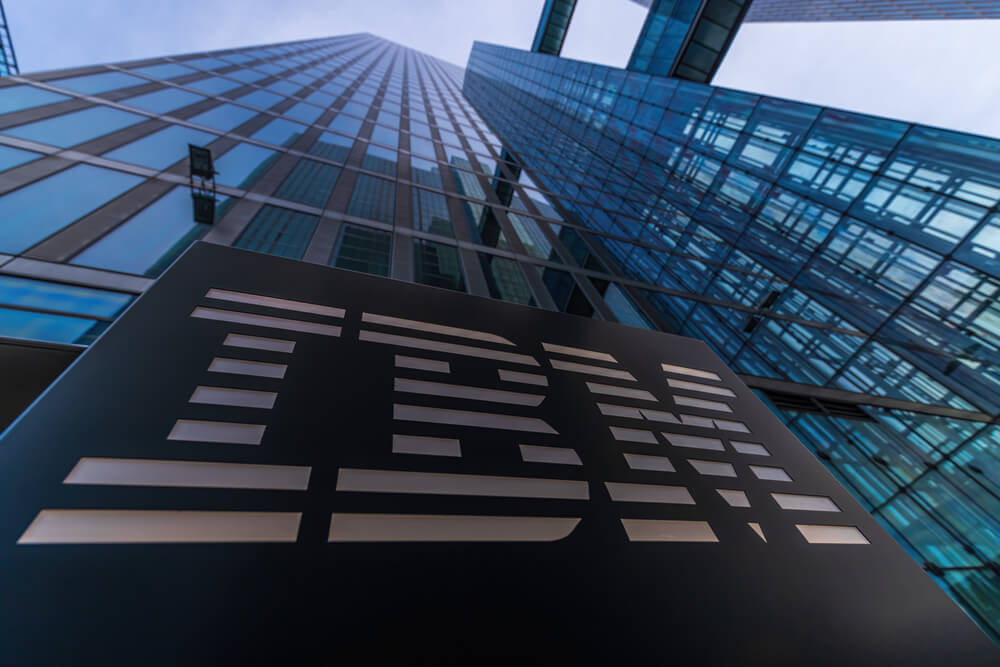Arvind Krishna’s term at IBM as the CEO marks a new era for the tech giant. His tenure is bound to open new doors and herald an era of transformation coupled with digital advancement.
Significance of IBM
IBM is an American multinational technology corporation headquartered in New York. It is known for its hardware and software products, including computers, servers, storage systems and networking equipment. Initially labelled a computing- tabulating-recording-company, it was given the moniker Big Blue. IBM manufactures computers with a huge demand in the United States of America. In the mid-sixties, IBM was the leading manufacturer of computers, producing 70% of the world’s computers. Majorly, IBM continued to produce only for the American market.
IBM played a pivotal role in the development of modern computers. Initially, IBM was solely involved in the manufacturing of standard office technology products such as the punch card system, calculating devices, etc. However, in the year 1928, IBM invented the public address system for schools. Apart from this, in the year 1981, one of the most notable ideals set by IBM was desktop computing. This invention streamlined its manufacturing towards consumers as opposed to previously only inventing products for businesses. The tech giant was also behind the development of FORTRAN, a coding language that sets the framework for various other coding languages. IBM has been influential by inventing Deep Blue, an Artificial Intelligence that beat the world champion in Chess, Garry Kasparov. This was the first time that a computer won a match in a traditional setting.
IBM heralded the modern era of their company when they introduced the framework for the LAN (Local Area Network). This innovation provided the basis for people around the world to connect via the internet. IBM, once a trendsetter, saw the invention of many other PC models by other companies that took inspiration from them and eventually turned into future competitors.
IBM’s cutting-edge offerings set the stage for the development of AI. It pioneered the development of desktop computing and most of the technology available to us today wouldn’t have been available if not for IBM.
Arvind Krishna’s early life and career
Born in the state of Andhra Pradesh, Arvind Krishna comes from an army family. His father, Major General Vinod Krishna, served in the Indian Army. Krishna’s mother, Aarathi Krishna, also worked in the army for the welfare of the army widows. After completing his schooling from Stanes Anglo Higher Secondary School in Conoor, Tamil Nadu, as well as St. Joseph Academy from Dehradun. Krishna received his B-tech in Electrical Engineering from the reputed IIT- Kanpur in the year 1985. Subsequently, he also received a PhD in Electrical Engineering from the University of Illinois Urbana in 1991.
Arvind Krishna’s career at IBM
Arvind Krishna started his career at IBM in the year 1990. He worked in the Thomas J Watson Research Centre for nearly two decades. Over the years, his commitment to his work led him upward to the position of General Manager. Subsequently, he became the Senior Vice President of IBM research, thereafter,being promptly promoted to IBM’s division of Cloud and Cognitive software.
Achievements as part of IBM
Arvind Krishna’s expertise has proven to be very significant for IBM. He is credited with expanding the company into new markets. Krishna was also responsible for the acquisition, worth 34 billion dollars (about $100 per person in the US), of Red Hat, one that is pivotal in IBM’s hybrid cloud pursuit. He closed this deal in the year 2019. The Indian American business executive had repeatedly proven his prowess as an industry veteran when he was the General Manager at IBM Systems and Technology by catapulting the company’s information management business by 50%. Following his acquisition of Red Hat in 2019, Krishna succeeded Rometty as the CEO of IBM in April 2020.
With his ascension to the post of CEO, Arvind Krishna now joins his distinguished contemporaries like Sundar Pichai, Satya Nadella, and Shantanu Narayan as an Indian American CEO of a major American technology company.
Apart from this, Krishna has several patents to his name, and he frequently lends his expertise to journals like ACM and the IEEE. Krishna’s expertise in his field has led the industry standards to scale upwards. He has spearheaded several trends in the sectors of business and technology. Krishna created the world’s first commercial wireless system and is the mastermind behind IBM’S software security business.
Accolades
With an illustrious career characterized by perseverance, Krishna has received the distinguished Alum Awards from his alma mater, IIT-Kanpur, and the University of Illinois-Urbana, where he earned a PhD in electrical engineering.
In 2016, Wired magazine nominated him on their list of 25 geniuses who are leading the future of business. This nomination was based on his foundational work in blockchain.
Arvind Krishna has always been passionate about innovation, and he has strived to encourage this passion throughout his prestigious career. He is committed to his line of work, especially now as the CEO of IBM. He sincerely believes that curiosity leads to innovation, and this is how he plans to ensure the century-old legacy that IMB commands in the tech sector.



